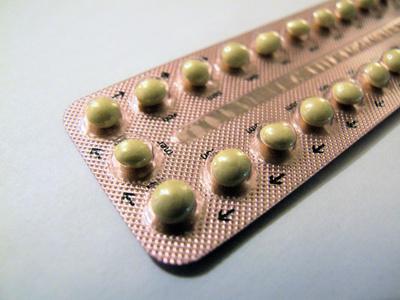Progesterone Side Effects
Jan 20, 2016
The female hormone produced by the ovaries in the second half of the menstrual cycle is called progesterone, which is essential for the normal functioning of the female reproductive system. It is also produced by the placenta during pregnancy; however, the amount of progesterone produced declines during menopause.
Progesterone is also given as a part of hormone replacement therapy in women. HRT also consists of giving estrogen to menopausal women to reduce the symptoms and prevent some diseases. Since estrogen can cause thickening of the uterus lining and increase the risk of developing uterine cancer, it is given along with progesterone which counteracts this effect. When women of child bearing age have regular periods suddenly stop menstruating, they are given progesterone. It falls in the category of medications of female hormones called progestins and acts by decreasing the quantity of estrogen in the uterus.
Progesterone Side Effects That Patients Should Know

Side Effects That Require Immediate Professional Care
- Chest pain
- Chills, fever, cold and flu-like symptoms
- Cough or hoarseness
- Problems in urination
Less common side effects:
- Clear or bloody discharge from the nipples
- Dimpling of breast skin, redness or swelling in the breast
- Non-healing sores on breast skin
- Inverted nipple, crusting or scaling of nipple
- Lumps in the breast or under the arm
The incidence of the following side effects is not known:
- Abdominal pain, bloating, indigestion, loss of appetite, nausea, heaviness in stomach, vomiting, blood in vomit, constipation, diarrhea, clay colored stools
- Changes in vaginal discharge, vaginal bleeding, spontaneous abortion
- Blurred vision, confusion, dizziness, faintness, fainting, headache, nervousness, shortness of breath, sweating, tightness in chest, wheezing
- Yellowing of eyes and skin, swelling of face, hands and legs, tingling numbness in the face, arms and legs, joint pain, stiffness and swelling, hives, itching, rash and redness of skin
- Dark urine, cleft palate, difficulty in swallowing, walking and breathing, irregular or fast pulse, pounding in the ears, stomach pain radiating towards the back
Continuing or Bothersome Side Effects That Require Professional Care
The progesterone side effects given below might not require medical attention and sometimes can disappear during the course of the treatment. The doctor can suggest ways to reduce these side effects:
- Breast pain and tenderness
- Worry and depression
- Muscle and joint pain
- White or brownish vaginal discharge
- Changes in walking, balance, behavior, rhythms of speech, clumsiness or unsteadiness, confusion about identity, place and time
- Blurred or loss of vision, ringing in the ears, double vision, drowsiness, dizziness, feeling drunk, unreal and movement of the surrounding
- Hair loss, loss of hearing, seeing halos around the light, loss of consciousness, cramps in muscles and stiffness
- Sleepiness, slurred speech, swollen tongue, redness of skin, changes in menstrual cycle, night blindness, tunnel vision, suicidal thoughts and changes in weight
Progesterone Side Effects That Doctors Should Know
As a health care provider, it is very important to know about the side effects so as to act quickly when patients have them.
- Genitourinary: These include breast tenderness, urinary problems, vaginal discharge, dryness in vagina, breast pain, breast cancer, excisional biopsy of breast, breast enlargement, leucorrhea, uterine fibroids, vaginal dryness, fungal vaginitis, dysuria, cystitis and UTI.
- Nervous system: These include headache, dizziness, confusion, asthenia, profuse sweating, nervousness, migraine, tremor and speech disorder.
- Cardiovascular: Chest pain, hypertension, angina pectoris, syncope and palpitations.
- Gastrointestinal: These include abdominal pain, bloating, diarrhea, nausea, constipation, dyspepsia, dry mouth, gastroenteritis, hemorrhagic rectum, hiatus hernia and vomiting.
- Muscoloskeletal: Joint pain, muscle pain, back pain, arthritis, leg cramps, hypertonia and myalgia.
- Psychiatric: Depression, anxiety, difficulty in concentration, insomnia, forgetfulness and personality disorder.
- Respiratory disorder: Cough, bronchitis, nasal congestion, pharyngitis, pneumonia and sinusitis.
- Dermatologic: Acne, pruritus, discoloration of skin, seborrhea, rash and verruca.
- Hepatic: Hepatitis, cholecystectomy and elevated levels of transaminases.
- Other: Abnormal vision, viral infection, hot flashes, fatigue, irritability, worry, night sweats, ear ache, tooth pain, anorexia, peripheral edema, abscess and herpes simplex.
Warnings
The following points should be kept in mind when taking Progesterone (Prometrium):
- This medicine should not be taken without informing the doctor if you are pregnant, as it could harm the fetus. The doctor should also be informed if you conceive when on the treatment.
- Some forms of progesterone can contain peanut oil and should not be taken if you are allergic to peanuts, the doctor should be informed as well.
- The risk of developing blood clots, stroke, heart attack or breast cancer increases with use of progesterone.
- Progesterone should not be taken by people who have history of breast cancer, abnormal vaginal bleeding, liver disease, pregnancy, history of stroke, heart attack or blood clot in the last one year.
- It is given for a period of 6 to 12 days and the doses should not be missed. Taking the medicine on time is important for it to be effective.
- Progesterone can cause impairment of reflexes and thinking and thus you need to be careful when performing activities that need you to be alert.
- It should never be used as a form of treatment for dementia and heart disease, as it increases the risk of developing these conditions.
 New Health Guide
New Health Guide
